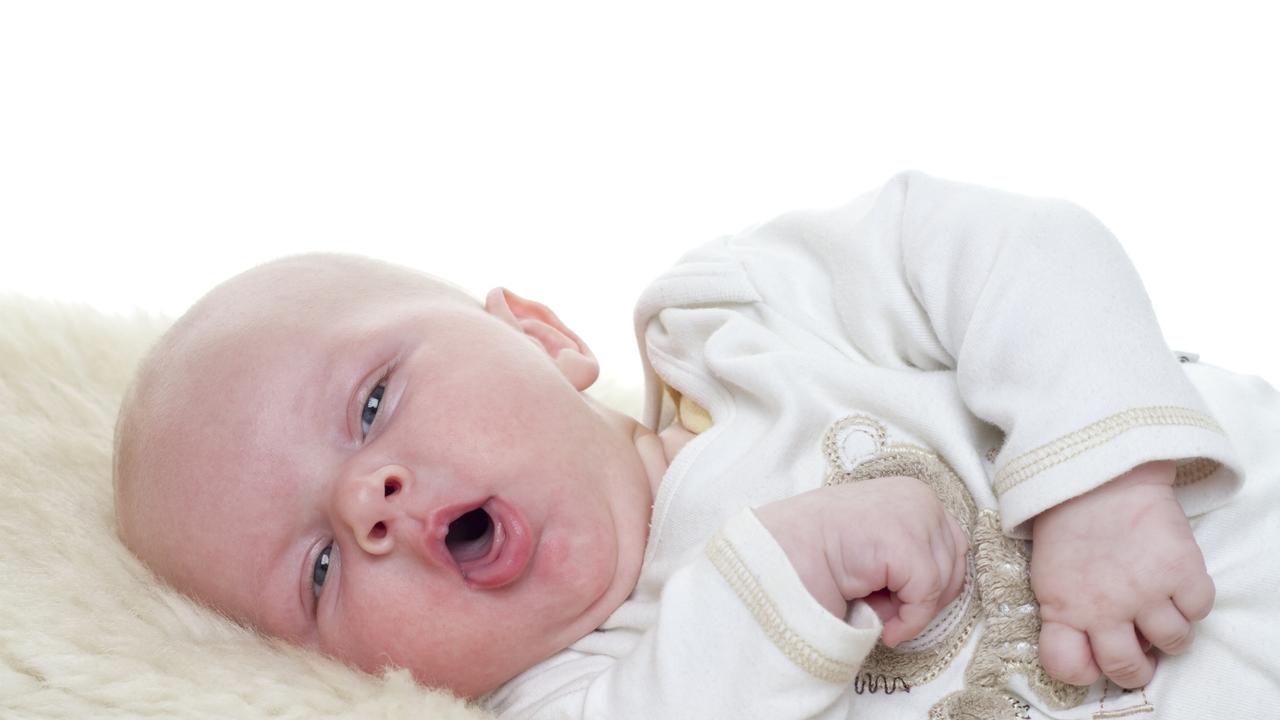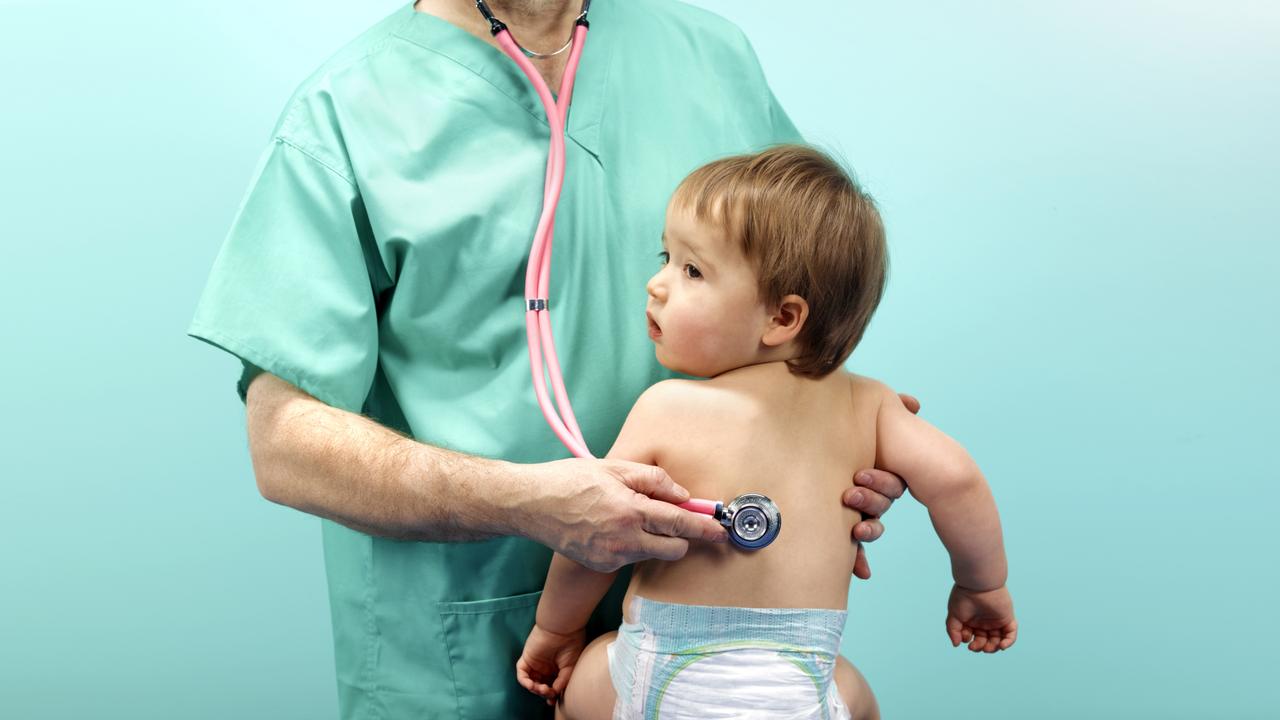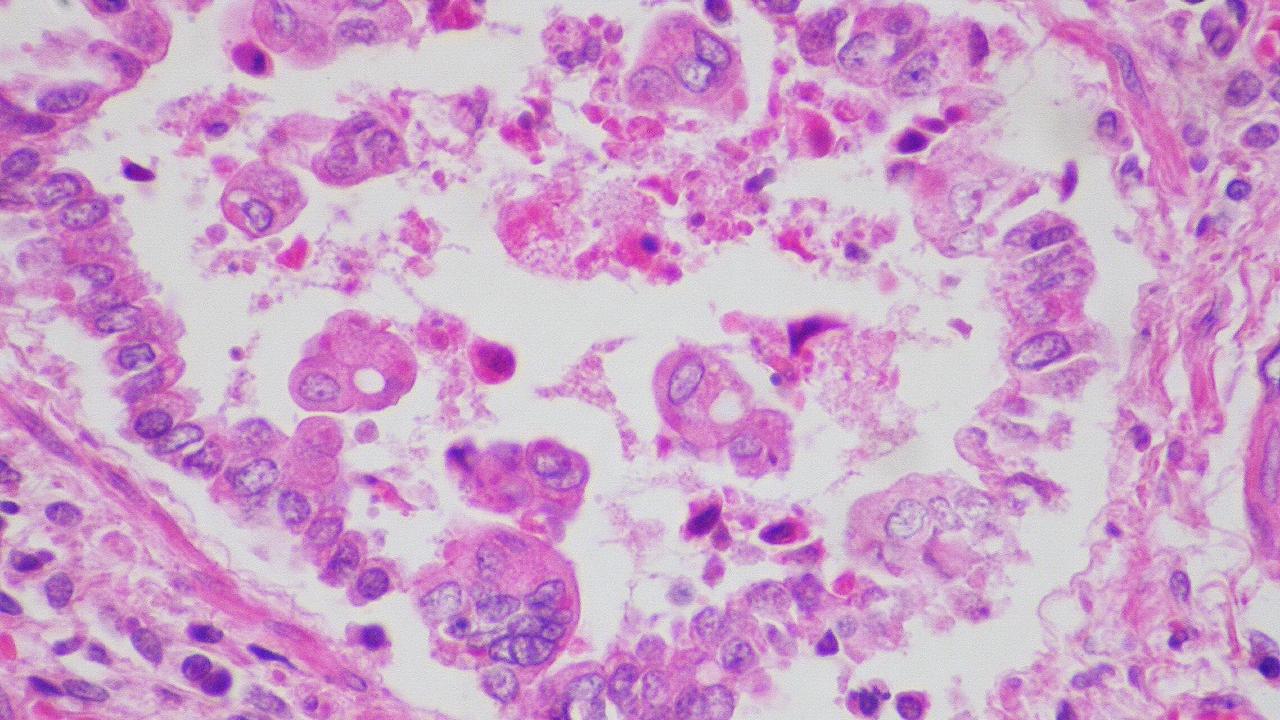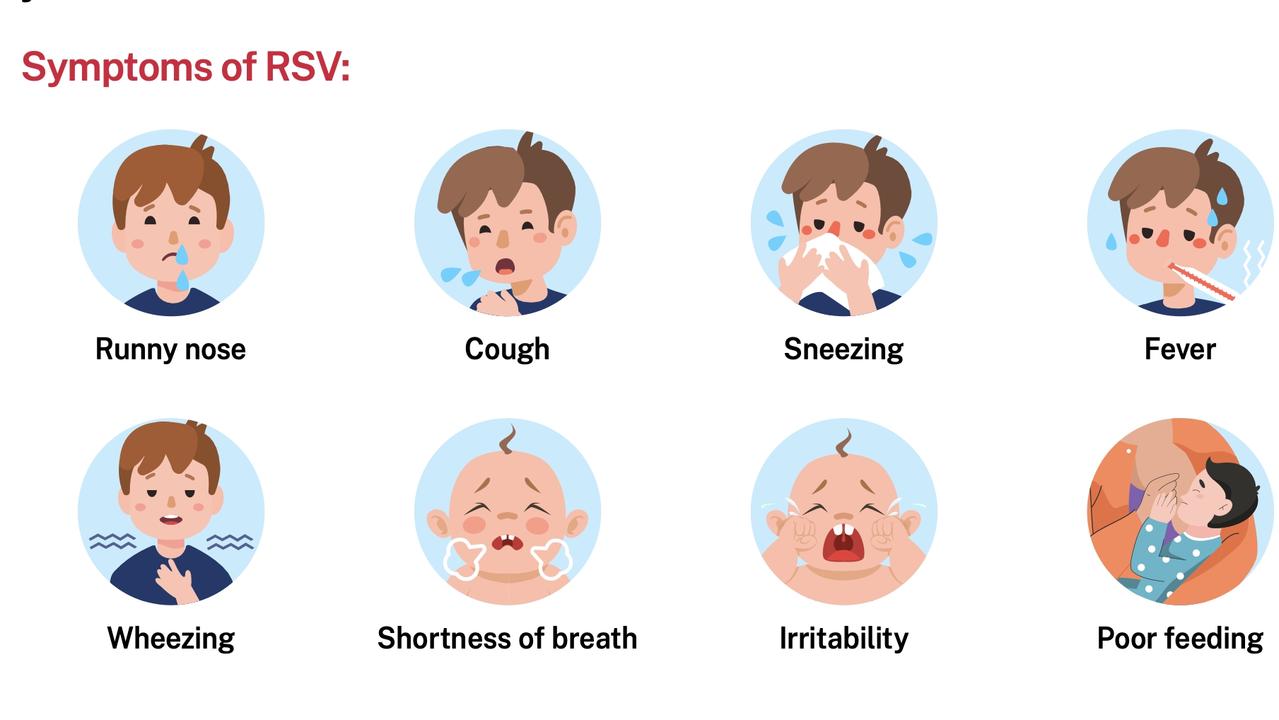Parents urged to get babies jabbed as RSV cases surge
Parents are being urged to protect their young children as cases of a brutal virus surge across Australia.
Parents are being urged to protect their children ahead of a possible horror winter of respiratory problems.
Queensland hospitals are being overrun with sick kids, with 7000 cases of RSV being recorded since January 1, which is double the number of cases in 2023 between the same period, January 1 to March 21.
More than 2100 of this year’s cases are in children under two years of age.
RSV is a highly contagious virus which causes lower respiratory tract infections, including bronchiolitis and pneumonia, which can be deadly for newborns and infants.

Severe RSV infections in infancy could also lead to lifelong health complications, including asthma.
In a bid to slow the growing deluge of cases, infants in Western Australia, Queensland and NSW are now eligible for the free Respiratory Syncytial Virus (RSV) immunisation program.
Experts say the immunisation program is the best way to protect children under two years of age from the virus, which is likely to impact all children at least once in their young lives.
AMA Queensland President Maria Boulton said the free immunisation could not have come at a “more vital time”.
“AMA Queensland has been advocating for free access to the RSV vaccine to keep babies healthy and out of hospitals,” Dr Boulton said.
“Last year over 3500 people were hospitalised with RSV (in Queensland), and concerningly, half of them were under the age of five.
“RSV is the main cause of hospitalisations for children five and under, and we look forward to this free rollout changing this statistic.
“The cost barrier to keep up with all the recommended vaccinations and immunisations for children is a challenge for so many families, and this free access will ensure all parents can prioritise their baby’s health.”
Nirsevimab, also known as Beyfortus, was approved by the Therapeutic Good Administration in November 2023 for use in infants and young children.

Immunisation Foundation of Australia founder Catherine Hughes has called for a national program to protect all Australian infants against RSV-related lung infections.
“RSV puts more Australian children in hospital than any other illness,” Ms Hughes said.
“Each winter, RSV leaves thousands of babies struggling to breathe, many requiring intensive care for pneumonia or bronchiolitis.
“All babies deserve protection against this serious and unpredictable virus, and that demands a national RSV immunisation program.”
Ms Hughes’ own three-week-old daughter was hospitalised with RSV in 2016.
She said she knows how important it is to ensure a child doesn’t have to unnecessarily suffer.
“Now that we have the means to protect all infants against severe RSV, we need to grab the opportunity with both hands,” she said.

Dr Boulton encouraged all parents to get their young children vaccinated against RSV.
“For parents with young children, respiratory illnesses can be extremely scary,” she said.
“It is terrifying to watch your baby struggle to breathe freely.
“Having access to this free protective measure will not only give parents some peace of mind but will save so many lives.
“This antibody is proven to be a safe and effective way to prevent severe RSV symptoms and will drastically reduce the risk of hospitalisation by 80 per cent.
“Access to vaccines is an essential pillar of preventive healthcare that helps keep people healthy while alleviating pressures on hospitals and primary care services across the state.”
RSV is the number one cause of hospitalisation of Australian children under five years of age, and with up to one-in-four of these children requiring intensive care.
Queensland
The 12-month program will be offered to more than 70,000 newborn babies, eligible infants and young children from April.
The free immunisation program will help prevent the spread of the virus, which is the most common cause of hospitalisation among infants and young children.
Eligible infants and young children include:
- All newborn infants will be offered as a dose at birth or prior to discharge from hospital
- Infants born on or after the program commencement date, who are not immunised in hospital, can access this dose up until they are less than eight months of age
- Aboriginal and Torres Strait Islander infants less than eight months of age
- Infants with certain complex medical conditions less than eight months of age
- Infants with certain complex medical conditions from eight months up to 19 months of age (inclusive), until October 31, 2024
NSW
NSW government also confirmed it would be offering the same immunisation program to eligible babies.
The immunisation option will be initially offered to hospitalised all premature infants (less than 37 weeks gestation at birth) born after October 31, 2023, and all Aboriginal and Torres Strait Islander infants born after October 31, 2023 in NSW.

Other high-risk infants will also be eligible, including:
- Chronic neonatal lung disease less than 12 months of age
- Infants with hemodynamically significant congenital heart disease, less than 24 months of age
- Others who may be eligible in consultation with a clinician include:
- Combined immunodeficiency – less than 24 months of age and not yet received curative treatment
- Trisomy 21, less than 12 months of age
- Other pediatric chronic and complex conditions that significantly impair respiratory function, less than 12 months of age
- Children within 28 days before haematopoietic stem cell transplantation (HSCT) or prior to engraftment after HSCT, less than 24 months of age
Western Australia
Meanwhile, WA was the first state to announce it would offer the immunisation program for free to infants under eight months.
More Coverage
From April, the program will be made available at GP practices, Community Health Clinics and Aboriginal Medical Services that provide childhood immunisations.
Those aged between eight to 19 months who are at increased risk of severe RSV will also be eligible.
RSV affects more than 65 per cent of all infants in WA in their first year of life, with about 1000 babies being hospitalised across the state.






